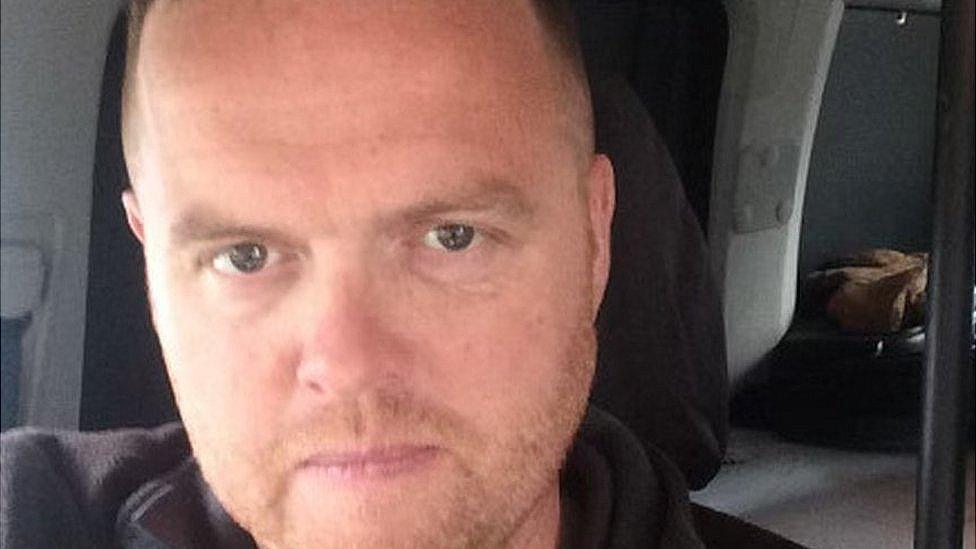Social businesses shut out of government support
- Published
- comments
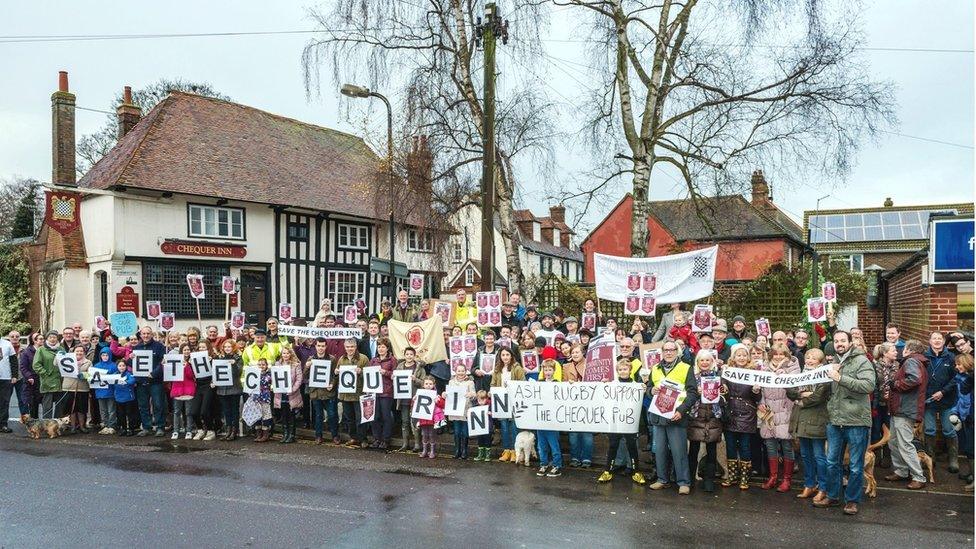
Community pubs are one kind of social enterprise, run by and for local people
Hundreds of community-run businesses have been forced to close because they could not access government support, lobby group Social Enterprise UK says.
It said the structure of businesses run for a social good and their choice of bank meant they missed out on help.
It is calling for easier access to support schemes in the future.
There are an estimated 100,000 social enterprises in the UK, employing over 2 million people. Many help those who have been hit hard by the pandemic.
The Restore Trust in Bristol is one of those organisations. It provides assistance and training for vulnerable people, including ex-offenders, people with learning disabilities, or long-term unemployed.
Like other social enterprises, it is run like a business but for social good rather than maximum profit.
Though demand has risen as more newly-unemployed people seek help, the coronavirus crisis has meant that much of the group's income has been delayed, creating a cash-flow problem.
The Bounce Bank Loan (BBL) scheme was designed for exactly this situation - to help viable businesses cope with a temporary drop in income caused by the pandemic.
But the Restore Trust was not able to take out one of the loans because its bank, Triodos, is not accredited with the scheme.
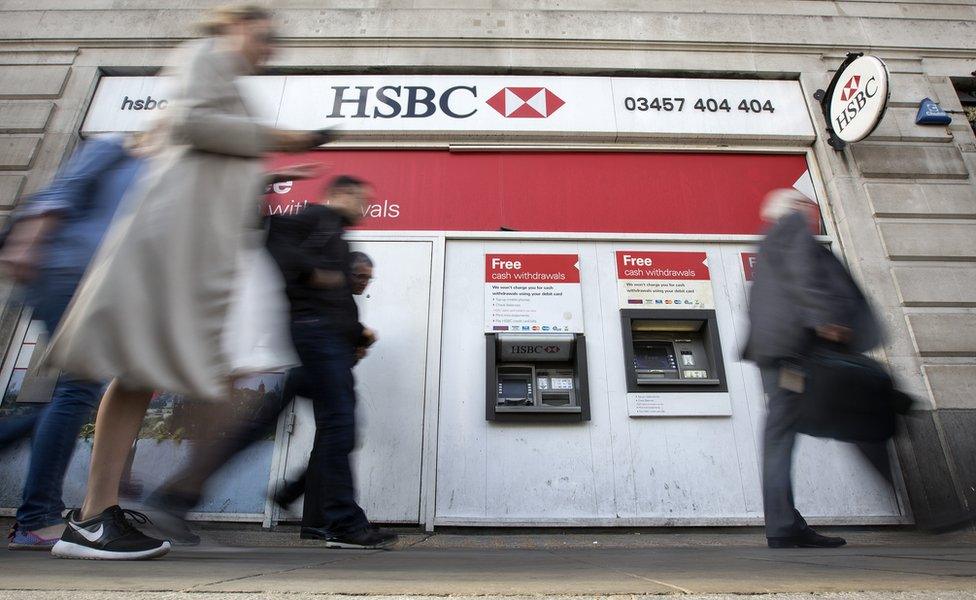
HSBC was one of the few banks to offer Bounce Back Loans to new customers, and was deluged with applications
Bounce back loans offer up to £50,000 with nothing to pay for the first year, and 2.5% interest thereafter - a cheap source of funding which has been a lifeline for many small businesses.
The Restore Trust tried every lender on the government's list, says chief executive Suzanne Thompson, but none of them would let her open a new account and get a bounce-back loan.
"It did feel like the criteria the bank were using to apply them were flawed," she says. "Some businesses that were slightly risky were able to put in an application and the money was in their account the next day."
After trying unsuccessfully since May to get a bounce back loan, the Trust has taken out a Coronavirus Business Interruption Loan (CBIL) - another government scheme - from Triodos, which comes with a higher interest rate.
Triodos says it didn't join the bounce back loan scheme because the sums involved are too small, and the technical processes are too complex. Most of the loans it offers exceed £100,000.
"Triodos have been very supportive," says Ms Thompson. "It was the mainstream banks who were not helpful and put a lot of barriers in the way of accessing government support."
One of the major difficulties social enterprises face is they tend to use so-called ethical banks - like Triodos - which share their values. But many of those banks are not accredited to offer the government's Covid support loans.
Switching banks to get access to the loan scheme has worked for some. But it has proved difficult or impossible for others.
Few banks are taking new applicants and those that are find themselves deluged with interest.
Co-operative and Community Finance, another Bristol-based organisation, provides loans to co-ops and other social enterprises.
The crisis has forced two-thirds of Co-operative and Community Finance's borrowers to slow loan repayments. And that has taken its toll on the lender's own income.
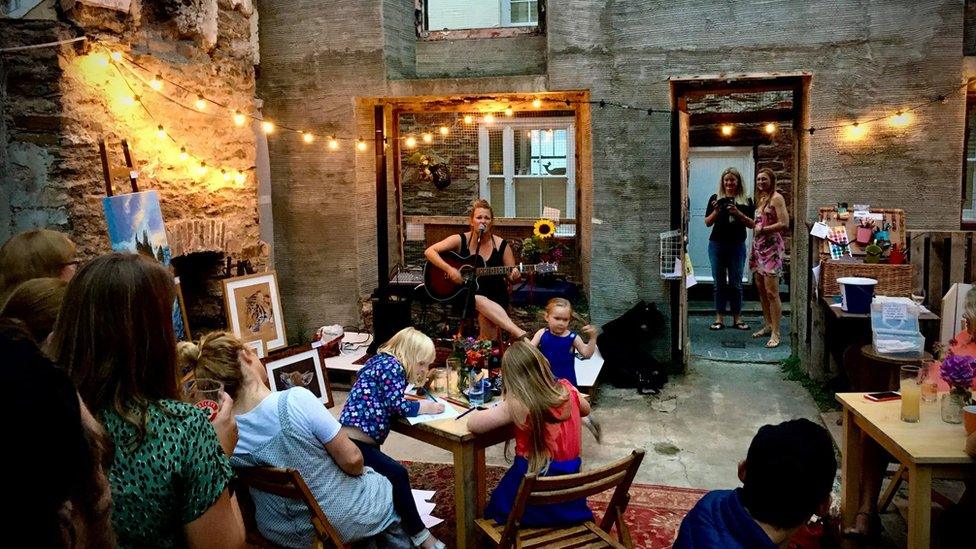
The Old Ship in Cawsand, Cornwall - another community pub bought with a loan from Co-operative and Community Finance
It tried to open a new account with HSBC to access a bounce back loan in May, as its existing bank, Unity Trust, did not provide them.
Operations manager Alain Demontoux reckons he spent 50 hours applying for a loan from HSBC. But in November, the bank rejected his application without providing a reason.
HSBC said it had extremely high demand for new accounts to access bounce back loans, adding that the application was declined after a "thorough review".
Mr Demontoux has complained to the financial ombudsman, but he was told it is dealing with a four-month backlog.
There are other sources of financial support for Social Enterprises, such as the £29m Resilience and Recovery Loan Fund and the £19m Social Enterprise Support Fund - but these are relatively small compared to the overall size of the sector, and some have now closed.
Social Enterprise UK estimates that around one in fifty social enterprises have closed during the pandemic, meaning hundreds of organisations could have been saved with easier access to government help.
'Ignored'
Last month, the lobby group and other social enterprise and co-operative organisations wrote to the Treasury asking for easier access to government-backed loan schemes.
"The government just ignored the [ethical lenders] and assumed that mainstream lenders would pick up the slack, which they haven't," said Andrew O'Brien, director of external affairs.
"A lot of social enterprises are desperate to get back to helping people and they are not going to be able to do that if they can't get access to the financing they need."
The British Business Bank, which administers CBIL and bounce back loan schemes, said any eligible lender could apply to offer them, and "lending decisions under the schemes are fully delegated to the accredited lenders."
You can follow Ben King on Twitter: @benedict_king, external
Related topics
- Published23 April 2020
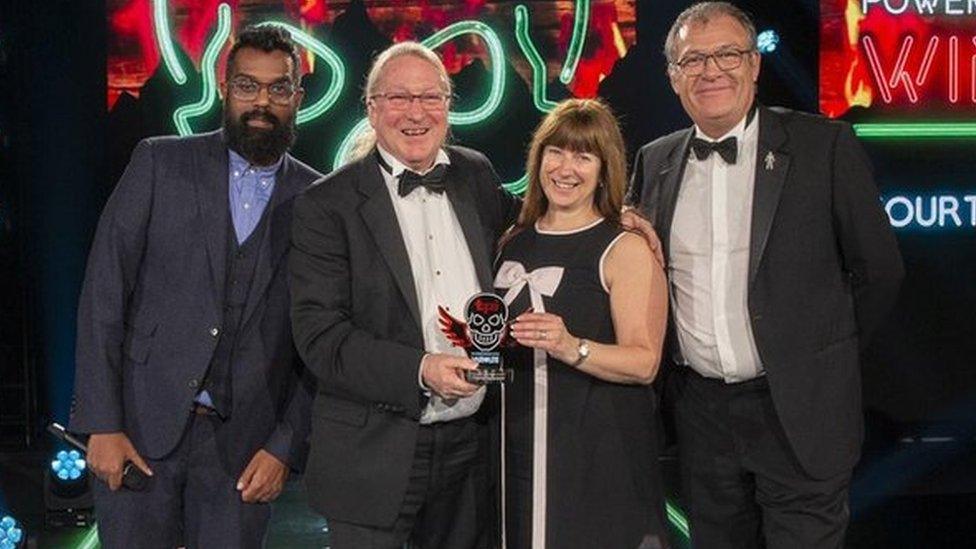
- Published11 January 2021
